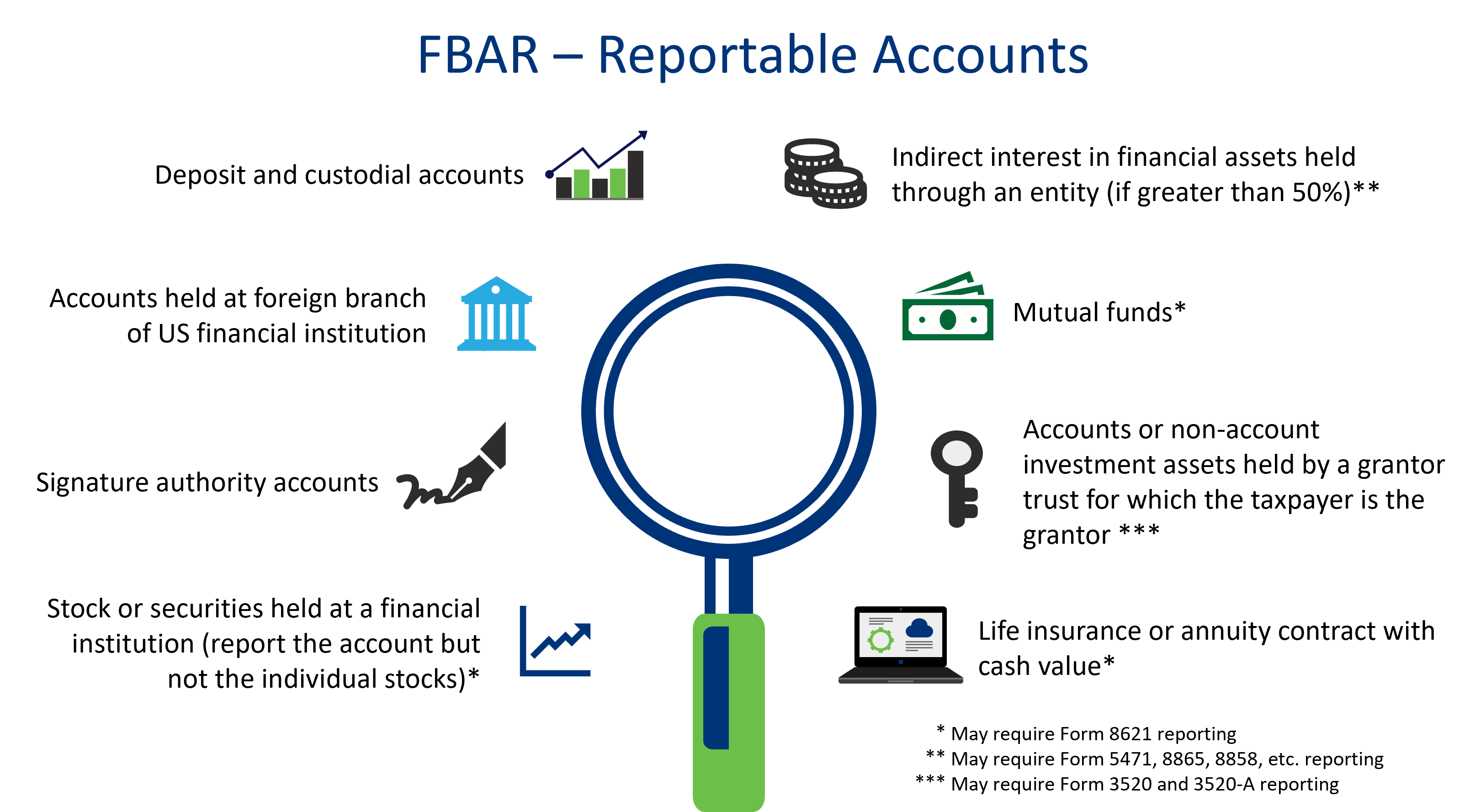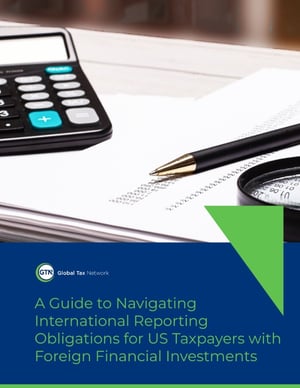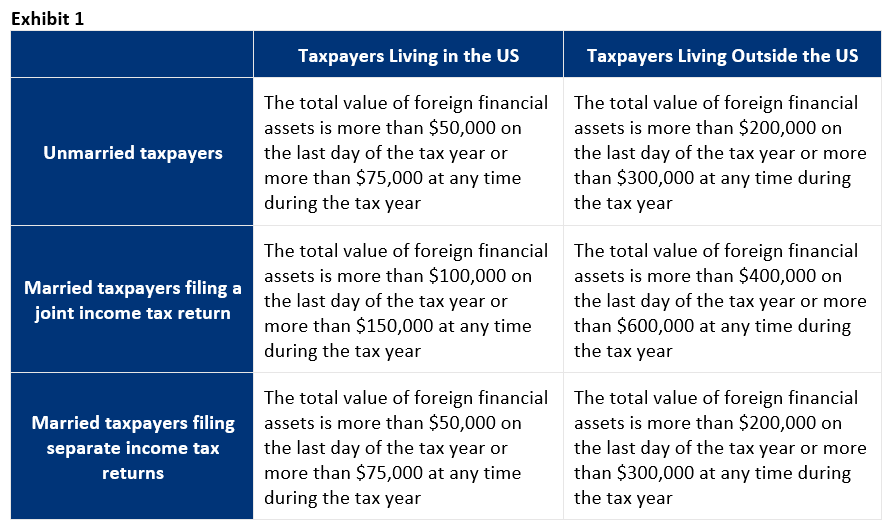Chapter 4
Form 5471 – Information Return of US Persons with Respect to Certain Foreign Corporations
Purpose of the Form: This form is used 1) by certain US persons who are shareholders of foreign corporations and/or 2) by certain US citizens and residents who are officers and/or directors in foreign corporations in which a US person acquires stock.
Common Definitions:
- US shareholder is a US person that owns at least 10% directly, indirectly, or constructively of the foreign corporation.
- Controlled Foreign Corporation (CFC) is a foreign corporation that is controlled by US shareholders who collectively own greater than 50%.
- Section 965 Specified Foreign Corporation (SFC) includes 1) any CFC and 2) any foreign corporation with a domestic corporation as a US shareholder.
- Control means ownership of more than 50% (directly, indirectly, or constructively).
Form 5471 reporting is not determined by whether any income was generated or if the business generated a profit during the year.
Filing Requirement: A US person is required to file Form 5471 if they meet the requirements of at least one of five categories. There are five different categories of Form 5471 filers—and some of the categories can be further broken down into sub-categories, depending on the specific type of ownership.
- Category 1 filer: A US shareholder of a foreign corporation that is a Section 965 SFC at any time during the tax year and who owned that stock on the last day of the tax year.
- Example: A US individual who owns at least 10% directly, indirectly, or constructively of the CFC is considered a Category 1 filer.
- Category 2 filer: A US officer or director of a foreign corporation where a US person acquired stock that meets a 10% threshold.
- Example: A US person is an officer or director of a foreign corporation in which a US person obtains 10% stock. The US officer or director is required to file Form 5471 to report the transaction to the IRS. This filing obligation applies even if the US officer or director does not own any stock.
- Category 3 filer: A US person who became or stopped being a US shareholder during the year, or an individual who became a US person while holding at least 10% of the foreign corporation’s stock by vote or value. Examples:
- US person who—when they acquire stock or additional stock—has 10% stock ownership in the foreign corporation.
- US person who disposed of foreign corporation stock bringing their ownership to less than 10%.
- A nonresident alien who has 10% or more stock ownership in the foreign corporation and then becomes a US tax resident in that year.
- Category 4 filer: A US person who controlled a foreign corporation during the year.
- Example: US person who owns greater than 50% of the foreign corporation (directly, indirectly, or constructively) is a Category 4 filer.
- Category 5 filer: A US shareholder of a CFC who owned the stock at any time during the tax year and who owned that stock on the last day of the tax year.
Tax Implications: US shareholders of CFCs are taxed on their pro-rata share of the foreign corporation’s current income whether or not distributed. Such income is reportable as either Global Intangible Low-Taxed Income (GILTI) or Subpart F income on the individual’s tax return. Certain elections are available to reduce or eliminate the tax on the CFC earnings at the US shareholder level.
Additional tax implications may apply if an individual is employed by the company, receives dividends/distributions, has a shareholder loan, transfers appreciated property, or sells company stock.
Due Date and How to File: Form 5471 is filed with the individual income tax return and must be filed by the due date of that return, including extensions.
Penalties: Taxpayers who fail to timely file a complete and correct Form 5471 may be subject to civil monetary penalties, criminal penalties, or both. Form 5471 penalties vary depending on the filer categories. Civil monetary penalties generally start at $10,000 and could increase after failure notification. Additional penalties for failure to report required information on Schedule M are limited to a maximum of $50,000 per foreign corporation, for a total of $60,000. Similarly, additional penalties for failure to report required information on Schedule O are limited to a maximum of $50,000 for each failure per reportable transaction, for a total of $60,000. The IRS may also reduce foreign taxes available for credit by 10% with escalation after failure notification. Additional penalties may be imposed for undisclosed foreign financial asset understatements.
Additionally, failure to file Form 5471 keeps the tax return open indefinitely. Generally, the statute of limitations for the IRS to audit a tax return is three years. However, if a taxpayer is required to file Form 5471 but fails to do so, the statute of limitation for the tax year never starts, so the IRS can go back and audit the entire tax return forever.









